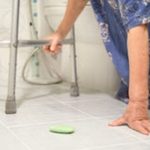Recent Blog Posts

What You Should Know About Nursing Home Slip-and-Fall Injuries
Falls, and their serious injuries, are very common in nursing homes. Over 60 percent of long-term care residents fall at least once. Most nursing home residents are physically frail. That’s why they’re in nursing homes. Some physical frailties include arthritis and mobility issues that contribute to the severity of, or risk of, a fall…. Read More »

Do Building Code Violations Cause Injuries?
Both in a technical sense and in a legal sense, building code violations can cause injuries. Code violations, such as unsafe floors and bad plumbing, often directly cause injuries. These violations could indirectly cause injuries as well. Code violations, even such things as unmowed grass, often create a criminal-friendly environment, a theory known as… Read More »

School Bus Accidents in Seattle
The school bus driver shortage has hit crisis proportions and now threatens the health and safety of students, faculty, and other motorists. Over 90 percent of school administrators say the school bus driver shortage significantly affects day-to-day operations. As a result, many school districts rely on substitute drivers who have little experience behind the… Read More »

Owner Negligence in Swimming Pool Drowning Claims
Many people enjoy swimming and frolicking in Puget Sound or one of the many rivers and lakes in the Seattle area. Others prefer what they believe to be the safety of a swimming pool. But most drowning and other injuries occur in swimming pools. So, we should say that swimming pools are safe, if… Read More »

Five Common Older Adult Fall-Related Injuries
Medicare and Medicaid pay more than half of the $50 billion a year in medical expenses related to older adult falls. In other words, you and I pay these costs, in the form of higher taxes and premiums. Fall injury survivors have already been victimized once. The responsible party, which is usually the property… Read More »

Fireball DUI Collision in Seattle
Police have a suspect in custody after a fiery alcohol-related wreck seriously injured four people. All four of the people inside the car were able to get out and were taken to the hospital in stable condition. The driver of that vehicle, however, is in police custody for suspected DUI, an SPD PIO confirmed…. Read More »

Evidence in a Car Crash Case
Proof is the cornerstone of a car crash or other negligence case. The victim/plaintiff must establish liability (legal responsibility for damages) by a preponderance of the evidence (more likely than not). That’s one of the lowest standards of proof in Washington law. But building a basic case isn’t enough. To obtain maximum compensation, the… Read More »

Possible Drug-Related Shooting at Seattle Apartment Complex
Investigators arrived at a senior living apartment complex shortly after midnight one morning to find a man who had been shot dead lying in one of the units. The incident occurred at a Third Avenue apartment complex, near the Blanchard Street intersection. Residents were surprised, but not completely shocked. “Police come here a lot… Read More »

What to Expect in a Bicycle Injury Case
Bicyclists often suffer such severe injuries in collisions that their medical bills can be significant. These victims have no protection from oncoming vehicles, other than thin bicycle helmets. Ironically, according to some research, bicycle helmets might do more harm than good. They give both riders and tortfeasors (negligent drivers) a false sense of security…. Read More »

Bedsores and Nursing Home Negligence
Pressure ulcers, one of the most common nursing home injuries, develop unless a resident turns over in bed at least once every two hours. Bedsores most often develop on skin that covers bony areas of the body, such as the heels, ankles, hips and tailbone. Cellulitis and cancer are two of the most common… Read More »
